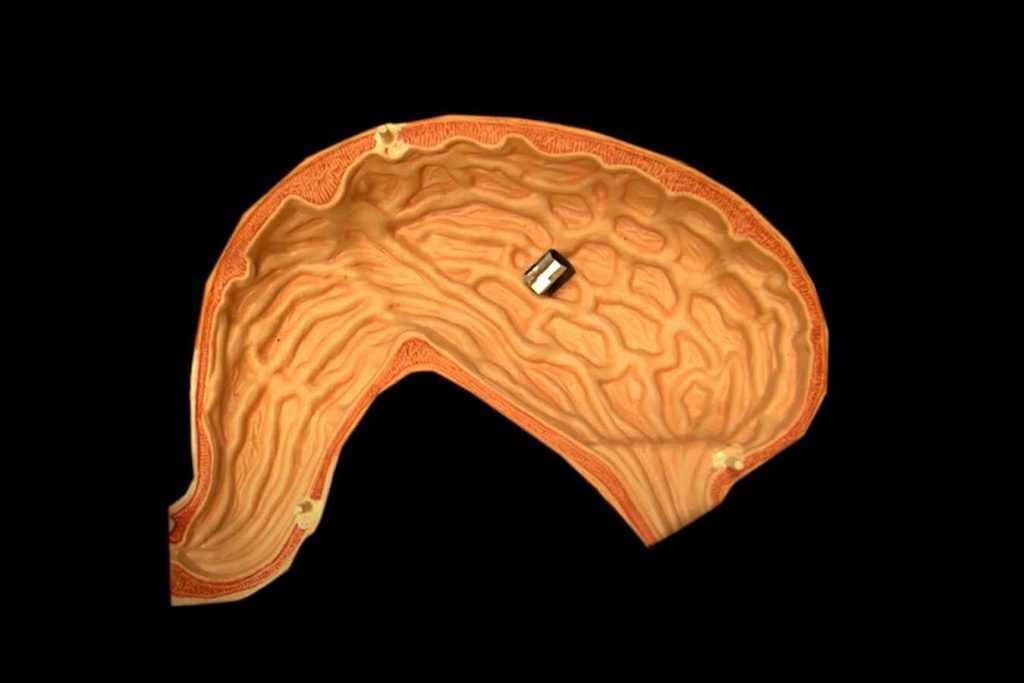A small robot that can shape-shift and produce heat could incinerate cancer cells or stop bleeding from inside the body. It could also be used to ferry drugs directly to tumours or hard-to-reach places like arteries.
Tiny robots with soft bodies have shown promise for delivering drugs without causing damage – but adding hard elements could make them more useful.
Ren Hao Soon at the Max Planck Institute for Intelligent Systems in Stuttgart, Germany, and his colleagues designed the centimetre-sized robot to have overlapping aluminium plates inspired by pangolins, the only mammal with scales. They layered rectangular “scales” over softer, magnetic material, which let the robot change its shape.
Advertisement
To make it move, curl up, stretch out or get warm, the researchers directed magnetic fields at the robot’s metal parts. Changing the frequency of these fields could also make the scales heat up, allowing the robot to blast its surroundings with heat. They found that the robot’s body could warm up to more than 70°C.
The researchers also used the robot’s heat to deliver cargo within a model of a stomach. They stuck a piece of rubbery material to the robot to imitate capsules of medicine. The adhesive they used dissolved when the robot warmed up, depositing the cargo. This could allow for targeted drug delivery within the body.
A pangolin-inspired robot in a model of the stomach
Ren Hao Soon et al., Nature Communications
Soon and his colleagues also tested the robot’s ability to stop bleeding from wounds using the stomach of a dead pig. They simulated bleeding by pumping blood with a syringe through a small cut. Then, the robot stretched out and laid over the spot, heating it up to make the blood clot.
Jake Abbott at the University of Utah says the robot could also be used to kill tumour cells in a targeted way instead of exposing large amounts of tissue to radiation or chemicals. “You could raise the temperature of the robot above an unsafe level [for normal cells] and hold it in place for a few minutes, and that can kill [cancer] cells. The human body is very sensitive to temperature,” he says.
Topics:

